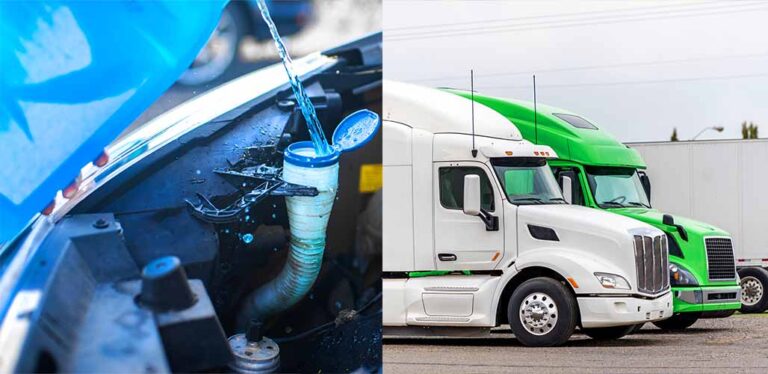Why Does My Car Sound Louder?
Why does my car sound louder? Modern cars usually run pretty quietly. Even my big diesel SUV doesn’t make too much noise while I’m driving along. When a usually softly sounding car starts to rattle, squeak or just run at a higher volume than usual, it’s often the first sign you’ll get of a mechanical problem. Today I’ll share how to tell normal volume increases to do with the weather or road conditions from a sound that means it’s time to get your car checked.
Contents
- Why does my car sound louder?
- Rusty mufflers increase the noise
- Is your exhaust damaged?
- When did you last check your oil?
Why Does My Car Sound Louder?
Old-school muscle cars are famous for their body-shaking engine rumble. You can hear them coming down the street before you can see them. Modern cars do not make quite the same impression, with manufacturers working hard to reduce the amount of noise pollution produced.
If your whisper-quiet car is suddenly making attention-grabbing loud sounds, then it is time to take note. Some cars genuinely sound like they want to shut off and give up. So, turn down the radio, perk up your ears, and consider these reasons when figuring out why your car sounds louder.
- Failing muffler
- Exhaust damage
- Catalytic converter issues
- Faulty oxygen sensor
- Worn spark plugs
- Low oil
- Bad bearings
- Worn gaskets and seals
Does Your Car Have A Failing Muffler?
A broken or failing muffler is one of the most common reasons for sudden and loud noises coming from your vehicle. The muffler’s purpose is to dampen the sound produced by your car’s engine. Unfortunately, like all of the other parts in your car, the muffler slowly degrades over time. As this happens, the muffler becomes less effective at dampening the sound produced by your car’s engine.
A common problem is the muffler rusting, which weakens the structure and creates holes. Another common issue is holes created by driving over terrain that damages the muffler. This is why you should avoid driving over obstacles on the road.
Damaged Exhaust Systems Are Loud
There is more than just the muffler in your car’s exhaust system. A louder car could result from damage to another component in the exhaust system. For example, the tailpipe is the end of the exhaust system. It is the piece you see sticking out the back of the car. If your tailpipe rusts or develops holes, this can increase the sound level of your car.
In addition, the tailpipe can affect the sound of your car. A larger tip can create a larger and heartier sound. Smaller tips make the sound raspier. If you have an older car, the new sounds you are hearing could be your tailpipe corroding. However, if you recently changed your tailpipe to an aftermarket one, the new sound could be from your aftermarket part addition.
Problematic Catalytic Converter
The catalytic converter is a part of the car’s exhaust system. It helps cars meet the government’s environmental requirements by removing airborne pollutants from the expelled gases. If your catalytic converter begins to fail, your engine will sound louder and rougher.
You will know your catalytic converter is failing because there will be a strong odor of rotten eggs coming from your vehicle. If you ignore the smell and sound, it will eventually fail completely. When this happens, your car won’t run, and you will have to tow the car to a mechanic. In the meantime, those toxic fumes build in the car, and you risk them backing up into the cabin.

Faulty Oxygen Sensor
The oxygen sensor tells the car’s computer how lean or rich the exhaust gases that exit the system. If the sensor’s data says the exhaust is too rich, the computer reduces the amount of fuel going into the engine. If the sensor says that the exhaust is too lean, it increases the fuel going into the engine. This functionality depends on the oxygen sensor operating correctly.
When the sensor gets too dirty or fails, it sends faulty data. The car’s computer then adjusts the amount of fuel with the faulty data. The result is a car engine running too lean or rich. When this happens, the sound produced also increases. Thankfully, a faulty oxygen sensor will typically trigger the check engine light on your dash.
Worn Out Spark Plugs
The spark plugs are what create the spark that creates the spark in the combustion chamber where the air and fuel blend. The air, fuel, and spark plug firing need to happen in sync to ensure optimized energy production and power. Unfortunately, as spark plugs age, they become dirty and begin to misfire. The misfiring makes a sputtering sound. A rough engine feel typically accompanies the faulty sound. Thankfully, this is easily fixed by replacing the spark plugs.
Low Oil Makes For A Loud Car
You need to change the oil in your car regularly. Neglect to do this, and it will eventually become low and dirty. When this happens, you eventually won’t have enough oil to properly lubricate all of the components. Without oil, the metal parts grind on each other. Metal grinding on metal makes a horribly loud sound. This is another easily fixed issue by replacing the old oil with new.
Bad Bearings Are Noisy
When your car’s engine is running, does it have a banging sound? It is similar to when you put sneakers in the dryer. Some people call it engine knocking, and it is a sign that the bearings have gone bad. This is a problem that typically impacts older vehicles. The bearings are what the engine’s moving parts sit on to help them move. If you hear your car’s engine knocking, check it as soon as possible. Ignore the sound, and you risk the engine seizing up and no longer working.
Worn Gaskets and Seals
Your car is full of gaskets and seals. They are typically made of rubber or silicone. The problem with these materials is that they dry out and weaken over time. When the seals in your exhaust system fail, your car runs louder. The exhaust system should be sealed to ensure sound is effectively dampened.
When seals fail, the sound waves escape through the gaps in the seals. A mechanic can fix the problem by replacing the worn-out gaskets in the exhaust system. Ignore this sound, and the failing seals create bigger problems with the exhaust manifold. If this fails, it is a much more expensive repair.
Why Does My Car Sound Louder?
Pay attention to the sounds that your car makes. Listen to how the car sounds when starting, when it first starts running, and after it runs for a while. If your vehicle begins to sound different, do not turn up the music volume and ignore it. Instead, turn down the volume and focus on the sound. With careful listening, you can pinpoint the source and fix the issue before it becomes a major problem.






